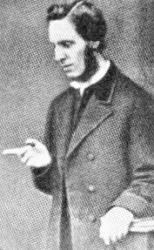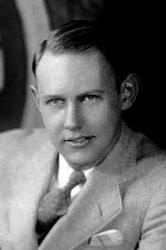Planning worship?
Check out our sister site, ZeteoSearch.org,
for 20+ additional resources related to your search.
- |
User Links
Person Results
‹ Return to hymnal






Export as CSV
James Walch
1837 - 1901 Hymnal Number: 164 Composer of "[O Zion, haste, thy mission high fulfilling]" in Foursquare Hymnal of Standard Songs of Evangelism James Walch was a musician and composer, born near Bolton, Lancashire, England in 1837. He spent his early life in the town and was organist in several churches there, including the parish church of St George’s. From 1870-1877, he was conductor for the Bolton Philharmonic Society. He also composed at least four published hymn tunes, the best known of which is called “Tidings”. Written in 1875, it’s usually used as the tune to a hymn called “O Zion Haste”.
James Walch was a musical instrument dealer by trade, and moved to Barrow-in-Furness in 1877. He later moved to Llandudno Junction in North Wales, where he died in August 1901 and was buried locally. His wife later donated money to pay for the organs in two local churches, St Paul's Llandudno and All Saints Deganwy, in his memory.
Three decades later, an article in the London Gazette reported on a dispute arising from his will, and mentioned that he had a son, Harry West Walch, who was a pianist and lived in Hereford.
St Paul's Church, Llandudno newsletter; used by permission of Christ Dearden (Walch's wife paid for the organ at St. Paul's Church)
James Walch
Edward F. Rimbault

1816 - 1876 Person Name: E. F. Rimbault Hymnal Number: 149 Composer of "[O happy day that fixed my choice]" in Foursquare Hymnal of Standard Songs of Evangelism Edward Francis Rimbault PhD LLD United Kingdom 1816-1876. Born in Soho, London, England, son of an organist and composer of French descent, he was taught music by his father., Samuel Wesley, and Wiliam Crotch. At age 16 he became organist of the Swiss Church in Soho. He later became organist at various churches, including St Peter’s, Vere Street, and St John’s Wood Presbyterian Church. He edited many collections of music, journals, and publications of music, and arranged music compositions. In addition to editing or arranging contemporary operas, he had a strong interest in editing or arranging earlier English music. He studied the musical treatises in the library of Archbishop Tenison, one of the oldest public libraries in London. In 1838, At age 22 he began lecturing about the history of English music, and was in much demand due to the interest aroused. He did editorial work for the Percy Society, the Camden Society, the Motet Society, and the Handel Society. For the latter he edited the “Messiah”, “Saul”, and “Samson” He was elected a Fellow of the Society of Antiquaries, and was granted membership in the Academy of Music in Stockholm, Sweden. Gottingen University also conferred upon him a PhD. His reputation was such that he was offered a teaching position at Harvard University in the U.S., which he turned down. In 1848 he was given an honorary degree by the University of Oxford. In 1849 he published a collection of English nursery rhymes and the tunes to which they were sung. Rimbault authored 76 books, a few named here include : “Bibliotheca madrigaliana” (1847); “The pianoforte” (1860); “Early English organ builders and their works” (1865). In 1855 he co-authored “The organ- its history and construction” with John Hopkins. He did a small amount of composing as well. He wrote an operetta in 1838, and a musical drama. He also composed a large number of pianoforte scores for operas by others. He was an admirable harmonium player. Traveling to various auctions for years, he accumulated a rare collection of books. After his death his extensive collection was auctioned off in 1877, with many items going to the British Library. About 300 items were sold to an individual, and upon his death in 1888, the ‘Drexel collection’ was bequeathed to the Lenox Library (precursor of the New York Public Library). Today, the collection is part of the Music Division of the NY Public Library for the Performing Arts. He was an author, editor, arranger, composer, lithographer, translator, scribe, adapter, and bookseller. He died at London, England. No information found regarding a family.
John Perry
Edward F. Rimbault
Thomas O. Chisholm

1866 - 1960 Person Name: T. O. Chisholm Hymnal Number: 259 Author of "The Prodigal Son" in Foursquare Hymnal of Standard Songs of Evangelism Thomas O. Chisholm was born in Franklin, Kentucky in 1866. His boyhood was spent on a farm and in teaching district schools. He spent five years as editor of the local paper at Franklin. He was converted to Christianity at the age of 26 and soon after was business manager and office editor of the "Pentecostal Herald" of Louisville, Ky. In 1903 he entered the ministry of the M. E. Church South. His aim in writing was to incorporate as much as Scripture as possible and to avoid flippant or sentimental themes.
Dianne Shapiro, from "The Singers and Their Songs: sketches of living gospel hymn writers" by Charles Hutchinson Gabriel (Chicago: The Rodeheaver Company, 1916)
==============================
Signed letter from Chisholm dated 9 August 1953 located in the DNAH Archives.
Thomas O. Chisholm
Samuel O'Malley Cluff

1837 - 1910 Person Name: S. O'Maley Cluff Hymnal Number: 72 Author of "I Am Praying for You" in Foursquare Hymnal of Standard Songs of Evangelism Rv Samuel O'Malley Gore Cluff (Clough) United Kingdom 1837-1910. Born in Dublin, Ireland, he attended Trinity College and became a minister in the (Anglican) Church of Ireland. He pastored at various locations in Ireland. In 1884 he became leader of the Plymouth Brethren. He married Anne Blake Edge. They had four children. He wrote hymn poems and about 1000 songs. He composed many melodies and oratories. He died in Abbeyleix, Ireland. While holding crusades in Scotland with D. L. Moody, Ira Sankey came across Cluff's poem about prayer and composed the music for it, used in subsequent crusades.
John Perry
Samuel O'Malley Cluff
Samuel A. Ward

1848 - 1903 Hymnal Number: 117 Composer of "[O beautiful for spacious skies]" in Foursquare Hymnal of Standard Songs of Evangelism
Samuel A. Ward
H. L. Turner
Hymnal Number: 51 Author of "Christ Returneth" in Foursquare Hymnal of Standard Songs of Evangelism
H. L. Turner
Merrill Dunlop

1905 - 2002 Hymnal Number: 248 Author of "Smile, Only Smile" in Foursquare Hymnal of Standard Songs of Evangelism Merrill Everett Dunlop
Born: May 9, 1905, Chicago, Illinois.
Died: June 15, 2002.
Dunlop was educated at Central YMCA College, Chicago (BA) and the Moody Bible Institute (graduated 1926). He played the piano and organ at Moody Church (1921-24), and served as director of music at the Chicago Gospel Tabernacle (1926-53). Burton Bosworth was his father-in-law.
Dunlop wrote over 700 hymns and Gospel songs, and works including:
Songs of a Christian, 1937
New Songs of a Christian, 1941
© The Cyber Hymnal™ (www.hymntime.net/tch)
Merrill Dunlop
Louis M. Gottschalk

1829 - 1869 Person Name: L. M. Gottschalk Hymnal Number: 285 Composer of "[Holy Ghost, with light divine]" in Foursquare Hymnal of Standard Songs of Evangelism Louis Moreau Gottschalk USA 1829-1869. Born in New Orleans, LA, to a Jewish father and Creole mother, he had six siblings and half-siblings. They lived in a small cottage in New Orleans. He later moved in with relatives (his grandmother and a nurse). He played the piano from an early age and was soon recognized as a prodigy by new Orleans bourgeois establishments. He made a performance debut at the new St. Charles Hotel in 1840. At 13 he left the U.S. And went to Europe with his father, as they realized he needed classical training to fulfill his musical ambitions. The Paris Conservatory rejected him without hearing him play on the grounds of his nationality. Chopin heard him play a concert there and remarked, “Give me your hand, my child, I predict that you will become the king of pianists. Franz Liszt and Charles Valentin Alkan also recognized his extreme talent. He became a composer and piano virtuoso, traveling far and wide performing, first back to the U.S., then Cuba, Puerto Rico, Central and South America. He was taken with music he heard in those places and composed his own. He returned to the States, resting in NJ, then went to New York City. There he mentored a young Venezuelan student, Carreno, and became concerned that she succeed. He was only able to give her a few lessons, yet she would remember him fondly and play his music the rest of her days. A year after meeting Gottschalk, she performed for President Lincoln and went on to become a renowned concern pianist, earning the nickname “Valkyrie of the Piano”. Gottschalk was also interested in art and made connections with notable figures of the New York art world. He traded one of his compositions to his art friend, Frederic Church, for one of Church's landscape paintings. By 1860 Gootschalk had established himself as the best known pianist in the New World. He supported the Union cause during the Civil War and returned to New Orleans only occasionally for concerts. He traveled some 95,000 miles and gave 1000 concerts by 1865. He was forced to leave the U.S. later that year as a result of a scandelous affair with a student at Oakland Female Seminary in Oakland, CA. He never came back to the U.S. He went to South America giving frequent concerts. At one, in Rio de Janeiro, Brazil, he collapsed from yellow fever as he played a concert. He died three weeks later, never recovering from the collapse, possibly from an overdose of quinine or an abdominal infection. He was buried in Brooklyn, NY. Though some of his works were destroyed or disappeared after his death, a number of them remain and have been recorded by various artists.
John Perry
Louis M. Gottschalk
Alexcenah Thomas
1857 - 1910 Hymnal Number: 132 Author of "Bring Them In" in Foursquare Hymnal of Standard Songs of Evangelism
Alexcenah Thomas
John Wyeth
1770 - 1858 Hymnal Number: 103 Composer of "[Come, Thou Fount of ev'ry blessing]" in Foursquare Hymnal of Standard Songs of Evangelism
John Wyeth


 My Starred Hymns
My Starred Hymns


